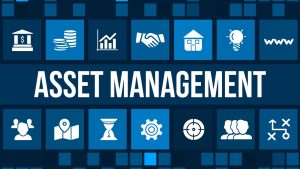How can you make a project successful? This is the question project managers worldwide keep asking themselves every day before starting work. If we take one mass project, many different sub-elements inside of it directly affect the overall project management. From lack of efficiency, budgeting challenges, unrealistic deadlines, and work scopes to various other problems, these keep triggering red alarms for the PMs. This situation remains the same when it comes to the Singaporean business world. This is where cutting-edge technology enters the scenario as a rescue assistant with a ‘Business Intelligence System’, or BI tool.
This will bring all the aspects under one roof and clear the path for you to solve almost every challenge that comes to project management tasks. In this article, we will investigate the utilisation of a ‘Business Intelligence System’ for project management while looking into the best benefits of this combination.
Exploring Business Intelligence System

- When it comes to a business or an organisation, a large volume of data has been gathered through various departments, from planning, resources, and supply chain to whatnot. Project managers indeed receive this data on time. However, the problem with them is that they give the insights separately. There is no consolidation of the data that PMs collect.
- The Business Intelligence System has been exclusively developed to provide the best solution for this issue in project management. This broad analytical framework has been designed to gather, manage, and evaluate massive quantities of data within an organisation to turn raw information into insights that can be used.
- The BI system is a powerful technological pinnacle that comes out as a combination of software, tools, and methodologies. With such robust modern tools, BI systems back up data collection, analysis, and visualisation, empowering businesses to make informed decisions. These systems let users identify useful trends, patterns, and connections by integrating several data sources.
- You might be wondering about the capacity of this BI system. Let us elaborate on this deeply for you. Business intelligence is empowered to do a broad range of tasks for PMs. This ranges from querying, reporting, and online analytical processing to splitting complex datasets into meaningful information while enhancing strategic decision-making as the outcome.
- The power of this tool is just unlimited. As it can simplify procedures and give businesses a thorough grasp of their internal dynamics and market trends, the latter increases operational efficiency and provides them with a competitive edge in the rapidly changing Singaporean market.
- Now, let us explain why these tools have gained so much popularity in the business world over the past few years. Project managers are keen on using BI systems, as these tools offer real-time insights into project performance, resource utilisation, and risk factors. This capacity empowers project managers to optimise planning, allocate resources efficiently, and proactively address challenges.
Key Benefits of a Business Intelligence System for Project Management

Time Savings
When you embark on a project, your sole purpose is to do more things quickly. Spending a lot of time on one particular task will make you avoid focusing on much more important things in the end. It is not a quality of outstanding project management. To help you with time-saving efforts, BI enters the project management realm with its cutting-edge features.
Are you interested in knowing how this is possible with BI tools? These systems significantly contribute to time savings in project management by automating data collection and analysis processes. As this encourages the efficient gathering and interpretation of project data, BI systems eliminate the need for manual reporting, saving valuable time for project managers.
We all know that automation is the ultimate key to task efficiency. This automation streamlines the workflow, allowing managers to devote more attention to strategic planning and decision-making. Project managers can focus on evaluating insights, seeing patterns, and putting carefully constructed strategies into action, which will eventually increase the overall effectiveness of project management procedures. This is because the load of routine data collection is reduced through the BI systems.
As a result, the process is more responsive and flexible. This makes sure that projects are completed on schedule and with higher accuracy.
Performance Monitoring
Even though you are looking into the performance of the resources you put into the project, you cannot ensure they perform up to expectations if you manually handle them. On the other hand, this is one of the major aspects that a project manager needs to keep in touch with.
There is no need to worry when implementing a robust technological solution like a BI system. It plays a crucial role in enhancing performance monitoring within project management by offering real-time tracking of key performance indicators (KPIs).
Now, we will explore what these BI tools can do for project managers. These tools encourage project managers to monitor project progress continuously, swiftly identify potential bottlenecks, and intervene proactively to ensure the project stays on point and within a predefined scope. That means it checks whether the resources are utilised up to the stakeholders’ expectations.
With the BI tool, you can identify underperforming resources and resource gaps in real time. Managers are empowered to make informed decisions and can quickly allocate resources and make adjustments as necessary due to the real-time insights that BI systems provide.
This helps to ensure that projects stay on schedule while reducing risks and maximising performance in response to changing conditions. All of these things are benchmark factors that affect the project’s final success.
Risk Management
No project can stay out of risk. Do you agree? Risks are important in any project, as their wise management can lead to operational success. On the other hand, the mismanagement of risks will bring your project down to zero. However, BI is designed with the ability to help you manage risks, and this is the number one reason that PMs tend to rely on it. These systems are excellent at spotting potential threats by thoroughly reviewing performance indicators and past project data.
It says that history is the path to the future. This is true in the project management realm, too. With historical data, project managers can proactively address emerging issues and strategically reduce risks before they escalate into mega-problems.
With BI technologies, project managers can get valuable insights into risk patterns that help them plan. They can allocate resources wisely and improve tactics by checking on prior performance.
As you can see, this is an analytical approach to risk management. It not only enhances the resilience of projects but also contributes to a culture of continuous improvement while considering all possible challenges.
Enhanced Collaboration
If it is a project, it must have good collaboration among the departments, aspects, and resources. No project can survive without communication with each aspect, as the overall outcome comes from all these elements. When you handle these different aspects of the project separately, how can you build a consolidation among them? This answer lies in the capabilities of modern BI tools.
Holding hands with the latter will help you establish excellent collaboration within project management by establishing a centralised platform for sharing and accessing project-related information. As you can see, BI collects all the data under a singular digital roof to provide useful insights by analysing it.
You can see it as a centralised canopy. This improves communication among team members, stakeholders, and other relevant parties and provides real-time visibility into project data. What it offers matches your expectations regarding collaboration and knowledge sharing within the project.
This is done through shared dashboards, reports, interactive analytics, etc. All team members can stay informed about project progress and contribute more effectively, which helps the PMs fill the gaps in the projects more effectively.
This magnified collaboration simplifies workflows and ensures that all stakeholders are on the same page in a unified and collaborative business environment.
Handling Projects Successfully via BI System

A business’s or company’s success depends on the projects they execute per year. If done up to expectations and industry standards, it helps every bit of the business excel perfectly. This is why project management must have 100% accuracy and perfection in every aspect. Business Intelligence Systems, as modern digital technology revolutionises this, are entering the Singaporean business landscape as an imperative software solution in today’s dynamic world.
However, as a project manager or a responsible stakeholder, you must align your industry requirements with the features of the particular tool before purchasing it blindly. Collaboration with an industry expert is the best possible solution you could think of to stay away from unnecessary problems.






